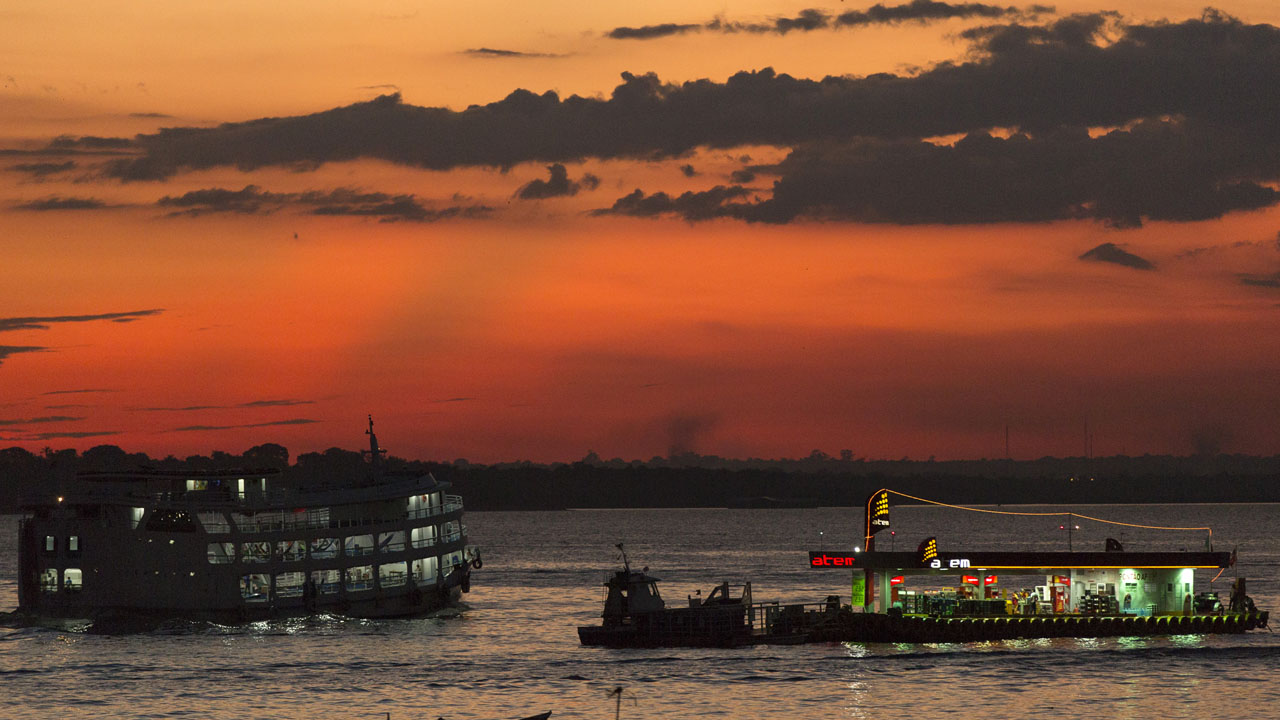
…U.S strengthens battle against piracy in GOG, East Africa, West Indian Ocean
The United States (U.S) Consul-General, Claire Pierangelo, has said West Africa loses about 800,000 tons of fish a year, worth almost $2 billion in gross revenue, to illegal activities by both foreign and domestic vessels.
Pierangelo stated this in Lagos as the USS Hershel “Woody” Williams, the first ship permanently assigned to Africa, arrived in Lagos as part of the U.S. government’s support to combat piracy in the Gulf of Guinea.
The Consul-General said Nigerian waters are at the centre of the Gulf of Guinea, a vast expanse of the Atlantic Ocean stretching from Senegal to Angola, which is the most dangerous part of the world for sailors, accounting for almost all kidnappings at sea in recent years.
“Ship visits like this one clearly demonstrate America’s continued dedication to our partners in the Gulf of Guinea as they strive for security of their resources, their economy, and their people,” Pierangelo said.
On his part, Hershel “Woody” Williams Captain, Chad Graham, said the U.S is here to train and work with the Nigerian Navy on anti-piracy, tactics, techniques and procedures.
Graham disclosed that the U.S. investments and donations to the Nigerian military is worth more than $559 million, part of which is the naval coast guard transfers renamed NNS Okpabana and NNS Thunder.
Also, the United States Government has extended its bilateral maritime agreement to East Africa and the Western Indian Ocean through the “Exercise Cutlass Express” to eliminate illicit and illegal activities at sea causing insecurity to the region’s maritime trade.
Speaking at a digital press briefing on Exercise Cutlass Express 2021, held in Djibouti, Kenya, Madagascar, and Seychelles simultaneously, the Vice Commander of the U.S. Sixth Fleet, Rear Admiral Jeffrey Spivey, said the exercise was designed is to enable the blue economy and to broaden the scope of determining and deterring illicit and illegal activities at sea and other regional insecurity.
The commander noted that there are broad set of challenges that present to everyone in the maritime sector, which include: illegal and unreported fishing; port security; piracy; human trafficking; counter narcotics; illegal movement from human trafficking; illegal cargo; maritime interdiction; illegal wildlife trade; humanitarian and disaster relief; search and rescue operations and other illicit activities at sea, which could negatively impact all nations.
Spivey who is also the Director of the Maritime Partnership Programme in Africa for U.S. Naval Forces Europe and Africa, explained that the exercise, established in 2011, is part of the Djibouti Code of Conduct, which is an information-sharing network in East Africa and the Western Indian Ocean nations, which agreement was updated in 2017 and known as the Jeddah Amendment.
He said the exercise is one of three African regional series exercises sponsored by U.S. Africa Command and facilitated by U.S. Naval Forces Europe and Africa/U.S. Sixth Fleet.
Spivey said the first region was the Obangame Express in the Gulf of Guinea earlier this year, followed by Phoenix Express in North Africa the Mediterranean, and now Cutlass Express in East Africa and West Indian Ocean.
He said the U.S. Navy and participating partner nations seek to develop and enable partnerships with each partner to develop regional security and to collaborate and build maritime capacity throughout Africa.
Fielding questions from Journalists, Commanding Officer, U.S. Naval Forces Europe – Africa, Maritime Partnership Programme and U.S. Navy Reserve Detachment 118, Captain Cannon Neslen, added that the exercise, which seeks to counter illicit maritime activity has seen improvement in the safety and security of the regional maritime environment in the past few weeks.
“Throughout this Cutlass Express 2021, we have witnessed firsthand the participating nations’ improvement in the maritime domain awareness, primarily through the use of the SeaVision web-based enabled tool that we can have an improved understanding and situational awareness of the maritime domain environment.
“Specifically, this past week, we have observed and assessed eight partner nations and multinational partners in three locations executing numerous counter-illicit-trafficking scenarios on East African waters. These scenarios have been really important and have focused on countering illicit arms and weapons. We have also drawn upon the expertise of our United Kingdom, India, and Georgia partners, resulting in improved partnerships and integrated efforts in countering illicit trafficking,” he added.






